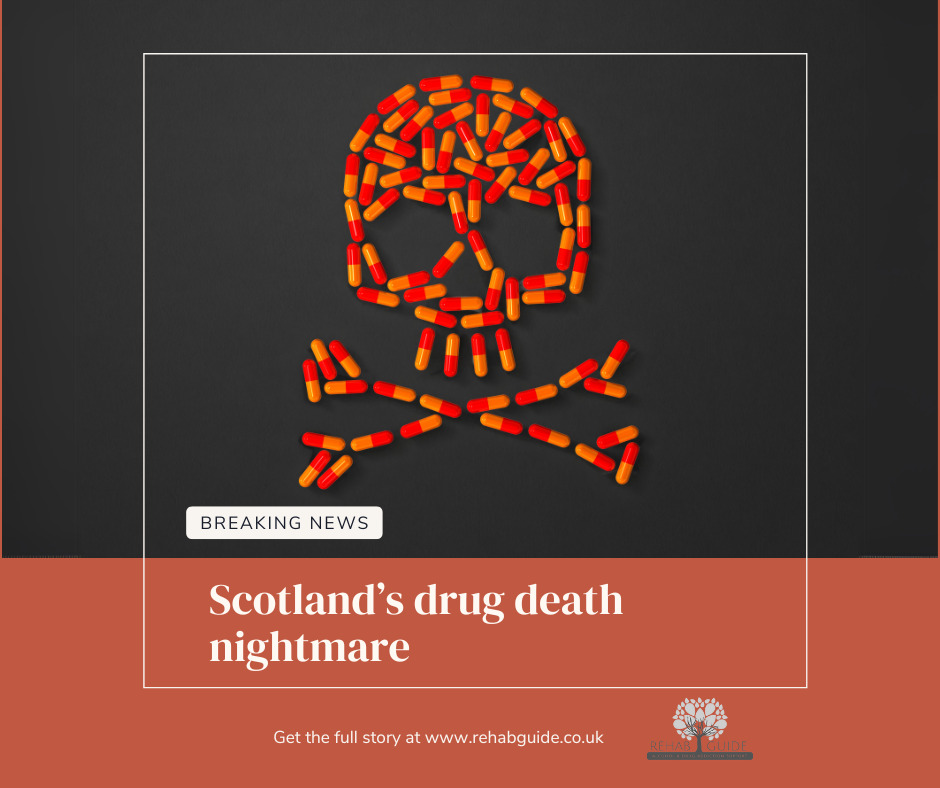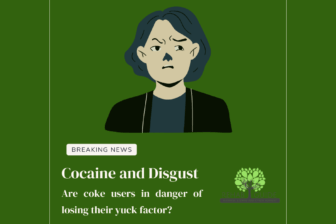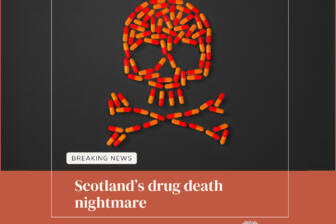Poverty and Loneliness: Scotland’s Drug Death Crisis
Could poverty and loneliness be driving Scotland’s men to drug deaths?
The latest report from the national records of Scotland delivered the shocking news that drug deaths are on the rise again in 2023.
This has been unwelcome news after previous years showed a sizeable drop. However, it raises questions about why the majority of this increase is from men.
Are men more likely to be addicted to drugs?
Research suggests that men and women are equally likely to misuse substances. However, men are far more likely to become addicted and die from taking drugs. There are several theories on the subject, ranging from the biological to the social and psychological.
At a basic biological level, men are at greater risk from the toxic nature of drugs. Sex hormones in our bodies have an impact on GABA receptors, which are part of the calming and pleasure areas of the brain. This is the reason some scientists and doctors believe that men may be more physically vulnerable to dying of an overdose.
Peer pressure and social stigma play a huge part, too. Being pushed by friends and culture to take drugs starts earlier and encourages taking larger doses. Social stigma towards masculinity and risk prevent people from seeking help for addictions.
Risk-taking among men is generally agreed to be higher than among women. Research shows that higher levels of testosterone in males lead to taking more risks in many areas, including health and substance use. However, statistics show that the gap in gender for risk-taking behaviour is getting smaller, which would, in theory, do the same for the difference in drug deaths.



Why are more men dying of drug overdoses in Scotland?
All over the world, more men die from overdoses than women. What is unusual about Scotland is that the recent rise consists almost entirely of male deaths, not an overall larger number of people, only men.
The question of why this is happening has several likely answers.
First is the link between poverty and taking drugs. People living in poverty are 18 times more likely to take drugs than those living above the poverty line.
Until recently, single mothers were the most likely to live in poverty in Scotland. However, that has changed with single men without children now the largest group of adults living in poverty at 33% compared with 29% of single women and 29 % of women without children.
Single people are already more likely to take drugs, which itself is a massive contributor. Adding poverty into the mix may be driving the numbers of drug-using men and, by extension, deaths up and up.
Injectable Naloxone shown above can save people from opiate overdose, but it must be administered by another person and so is little use to those using drugs alone.
People who live alone are also more at risk of dying if they have an overdose. Government efforts to provide naloxone to people at risk are of little use to someone who overdoses with no one there to administer the naloxone.
Is single life a factor?
With single men at greater risk of addiction and dying of drug overdoses, could the ever-increasing number of single households be a major factor?
Scotland has the highest percentage of single-person households in the UK. One in three Scottish homes is singly occupied, leaving many people isolated and at risk.
Loneliness is another reason why people take drugs, but it is also a result.
The sad fact is that people feel lonely and depressed, so they use drugs to self-medicate. Then, as they get worse and start abusing drugs, they start to isolate themselves more.
What can be done about male drug abuse in Scotland?
Combatting loneliness
Finding new ways to deal with isolation in men of various ages is vital to any effort to drive down drug deaths.
Dealing with depression
Scotland has a high number of people with depression; 1 in 10 people are diagnosed in their lifetime, and likely many more go untreated.
There are strong links between substance misuse and depression and anxiety. Half of the people with mental health problems will also experience problems with substance abuse.
Attacking the problem from all angles with increased social support, community groups, and facilities can make a significant difference. Encouraging people to seek help, counselling and medication instead of self-medicating with drugs can be lifesaving.
Are you or a loved one struggling with addiction?
There are plenty of avenues to help people with drug addiction in Scotland and the UK. The NHS offers help through charity support groups and local trusts.
Private rehabilitation is also an option with a range of low cost and luxury centres throughout Scotland and the UK. Dont suffer in silence contact Rehabguide for advice and guidance on what detox and rehabs are available in your area.






